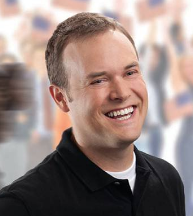New Tools for Science Policy
The Illusion of Average: An Open Science Approach to Research
Improving Scientific Research in the Age of Personalization and Open Data
In a new program for the Fall 2016 New Tools series, we are hosting three seminars that explore the future of scientific research as it confronts enormous challenges and discovers promising new opportunities.
About the Seminar
September 23, 2016 8:30am—10:30am
Talk 2: When the Differences Matter: an Open Science Approach in an Age of Individualization
Public participation for science or advocacy has an inconsistent history of effectiveness. New tools for crowdsourcing and challenge platforms have unflattering track records, revealing the current limits of technologies to enable the centralization or decentralization of power and influence. Local expertise can be harnessed toward a new reality in which communities provide feedback on their own conditions. When challenges arise, publics equipped with new tools can legitimately participate by studying their circumstances, testing alternatives for improving their communities, and advocating for the actions that best reflect their current values. Further, these strategies can be tailored to local realities to increase the likelihood of successful adoption and implementation. There are many examples of how open innovation is changing conversations with participatory infrastructures:
- When data are open, more values are supported, and alternatives can be explored.
- Publics can collect and process data to focus attention on locally relevant problems.
- Publics are local experts who provide distributed context and situational awareness.
- Publics ask unique questions that can be locally tested with quantified self, agile science, and small data methods.
- Crowdsourcing can be a form of advocacy, as demonstrated in the water crisis in Flint, Michigan.
Taken together, these opportunities highlight the shifting role of non-scientists from receiving “answers” to, instead, shaping questions and supporting rigorous, contextualized research that can be fed back into a robust, curated knowledge base.
Talk 1: The Illusion of Average: Implications for Scientists
Talk 3: The Illusion of Average: Renewing Research Infrastructure
Location Information
ASU Washington Center
1834 Connecticut Ave NW
Washington, DC 20009
RSVP: [email protected]
Speakers
Past Series
-
December 15, 2023 9:00am
Responsible Artificial Intelligence: Policy Pathways to a Positive AI Future
Andrew Maynard
-
November 17, 2023 9:00am
“Unacceptable Costs”: Managing for biological invasions and climate risks in the US Pacific Islands
Laura Brewington
-
October 30, 2023 9:00am
Patent Data & Publicly-Funded Research: Applications, Benefits, & Misuse
Bhaven N. Sampat
-
April 05, 2023 9:00am
Quantity over Quality: How to Solve Electric Vehicle Charging Infrastructure
Ryan Cornell
-
March 29, 2023 9:00am
How Complexity Science Can Guide Urban Transformations
Bastian Alm, Shade Shutters
-
February 02, 2023 9:00am
Making Research Matter for Policy
Robert M Cook-Deegan
-
October 07, 2022 9:00am
Creating Justice, Trust, and Inclusivity in Climate Policymaking
Kaiping Chen
-
March 21, 2022 9:00am
Framing Our Biological Futures
Cynthia Selin, Christopher Scott, David Tomblin, Janine Myszka , Lauren Lambert, Haley Manley, Dorit Barlevy
-
June 08, 2022 9:00am
Braiding Birthwork, Racial Justice, and Smart Technology
Alexandrina Agloro, Stevie Merino

